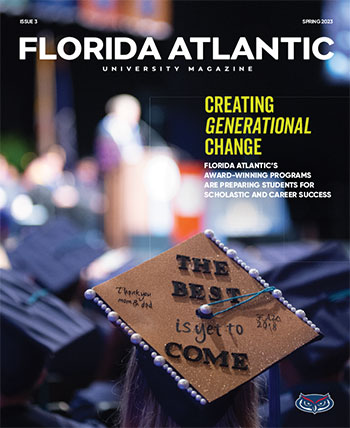7/30/2023
Florida Atlantic: Empowering Women in STEM
Nearly $1 Million to Increase Inclusivity of Faculty
To help ensure appropriate representation of women in science, technology, engineering and mathematics (STEM), Florida Atlantic researchers received a three-year, nearly $1 million National Science Foundation (NSF) ADVANCE ADAPTATION grant.
Studies show that the absence of an inclusive and diverse STEM faculty significantly hurts the education of a STEM workforce by the lack of role models to help educate diverse groups of students. Demographically unrepresentative science also can negatively impact and neglect research in areas that communities and societies need.
The NSF ADVANCE program is designed to foster gender equity through a focus on the identification and elimination of organizational barriers that impede the full participation and advancement of diverse faculty in academic institutions. Organizational barriers that inhibit equity may exist in policies, processes, practices and the organizational culture and climate. ADVANCE “Adaptation” awards provide support for the adaptation and adoption of evidence-based strategies to the academic, nonprofit institutions of higher education as well as non-academic, nonprofit organizations.
“Successful implementation of our program for institutional change will achieve a more representative and participatory STEM faculty and accelerate institutional competitiveness in education and research,” said Alka Sapat, Ph.D., principal investigator, professor and director of the School of Public Administration in FAU’s Dorothy F. Schmidt College of Arts and Letters. “The crucial outcome of this transformation will be the mitigation of STEM workforce shortages with implications for local industries, in particular, biotechnologies, aerospace, health, aging, agriculture, international trade, marine environment, information and security, and financial services.”
If you would like more information, please contact us at dorcommunications@fau.edu.

